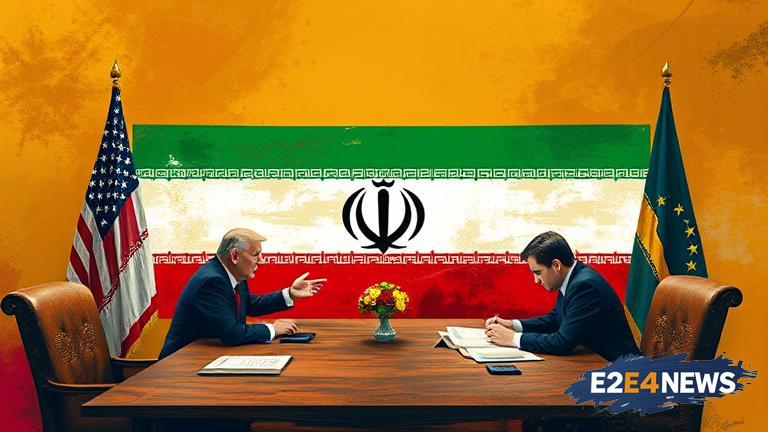Iran has been engaging in intense negotiations with world powers to prevent the snapback of sanctions, which could have severe consequences for the country’s economy. The Iranian government has been working tirelessly to salvage the 2015 nuclear deal, also known as the Joint Comprehensive Plan of Action (JCPOA). The deal, which was signed between Iran, the United States, the United Kingdom, France, Germany, China, and Russia, imposed restrictions on Iran’s nuclear program in exchange for relief from economic sanctions. However, the United States withdrew from the deal in 2018 and reimposed sanctions on Iran, which has had a devastating impact on the country’s economy. Iran has been trying to convince the other signatories to the deal to provide economic relief and prevent the snapback of sanctions. The Iranian government has been negotiating with the European Union, China, and Russia to find a way to circumvent the US sanctions and keep the deal alive. The negotiations have been ongoing for several months, with Iran’s Foreign Minister, Mohammad Javad Zarif, playing a key role in the talks. Zarif has been meeting with his counterparts from the other signatory countries to discuss ways to salvage the deal and prevent the snapback of sanctions. The Iranian government has been warning that if the sanctions are reimposed, it will have no choice but to withdraw from the deal and resume its nuclear program. This has raised concerns among the international community, with many countries warning that a nuclear-armed Iran would be a threat to regional and global security. The United States has been opposed to the deal from the start, with President Donald Trump calling it ‘the worst deal ever’. However, the other signatory countries have been trying to find a way to keep the deal alive, despite the US withdrawal. The European Union has been working on a mechanism to allow companies to do business with Iran without fear of US sanctions. China and Russia have also been providing economic support to Iran, which has helped to mitigate the impact of the US sanctions. Despite the challenges, Iran remains committed to the deal and is willing to negotiate with the other signatory countries to find a way forward. The Iranian government has been calling on the international community to support the deal and prevent the snapback of sanctions. The country’s economy has been suffering greatly due to the sanctions, with inflation soaring and the value of the currency plummeting. The Iranian people have been bearing the brunt of the sanctions, with many struggling to make ends meet. The government has been trying to find ways to support the people, including providing subsidies and other forms of assistance. However, the sanctions have made it difficult for the government to provide the necessary support, and the country is facing a severe economic crisis. The negotiations to prevent the snapback of sanctions are ongoing, with Iran’s Foreign Minister, Mohammad Javad Zarif, meeting with his counterparts from the other signatory countries to discuss ways to salvage the deal. The international community is watching the negotiations closely, with many countries warning that a failure to reach an agreement could have severe consequences for regional and global security. The Iranian government remains committed to the deal and is willing to negotiate with the other signatory countries to find a way forward. The country’s economy is suffering greatly due to the sanctions, and the government is trying to find ways to support the people. The negotiations are ongoing, and it remains to be seen whether an agreement can be reached to prevent the snapback of sanctions.
